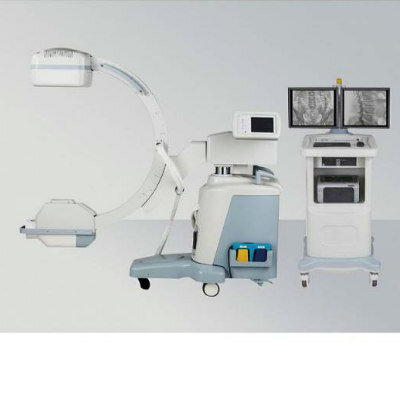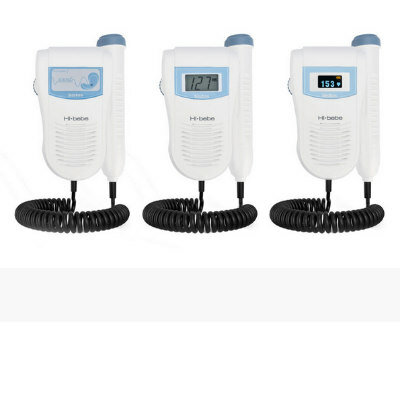Proton Radiotherapy Bests Standard Radiotherapy
|
By MedImaging International staff writers Posted on 17 Feb 2016 |
Proton beam therapy (PBT) to treat medulloblastoma in pediatric patients appears to be as safe as conventional treatment and offers similar survival rates, according to a new study.
Researchers at Massachusetts General Hospital (MGH; Boston, MA, USA) and Brigham and Women's Hospital (Boston, AM, USA) conducted a non-randomized, open-label, phase 2 trial involving 59 patients (aged 3–21 years) with medulloblastoma to assess late complications, acute side-effects, and survival associated with PBT. All patients underwent craniospinal irradiation of 18–36 Gy radiobiological equivalents (GyRBE), followed by a boost dose. The primary outcome was cumulative incidence of ototoxicity at three years; secondary outcomes were neuroendocrine toxic effects and neurocognitive toxic effects, as assessed by intention-to-treat.
The results showed that three years after treatment, progression-free survival was at 83%, and at five years, progression-free survival was 80%; 12% of patients had serious hearing loss, which rose to 16% at five years. Processing speed and verbal comprehension were also affected, but perceptual reasoning and working memory were not. At five years, 55% had problems with the neuroendocrine system, with growth hormone being the most commonly affected. On the other hand, the researchers found no cardiac, pulmonary, or gastrointestinal toxic effects, which are common in patients treated with photon radiotherapy. The study was published on January 29, 2016, in the Lancet Oncology.
“Proton radiotherapy resulted in acceptable toxicity and had similar survival outcomes to those noted with conventional radiotherapy, suggesting that the use of the treatment may be an alternative to photon-based treatments,” concluded lead author Torunn Yock, MD, and colleagues of the MGH Proton Center. “Although there remain some effects of treatment on hearing, endocrine, and neurocognitive outcomes, particularly in younger patients, other late effects common in photon-treated patients were absent.”
PBT is a precise form of radiotherapy that uses charged particles instead of X-rays to deliver a dose of radiotherapy more precisely and with minimal damage to surrounding tissue. Evidence is growing that protons can be effective in treating a number of cancers, in particular children and young people with brain tumors, for whom PBT appears to produce fewer side effects such as secondary cancers, growth deformity, hearing loss, and learning difficulties.
Related Links:
Massachusetts General Hospital
Brigham and Women's Hospital
Researchers at Massachusetts General Hospital (MGH; Boston, MA, USA) and Brigham and Women's Hospital (Boston, AM, USA) conducted a non-randomized, open-label, phase 2 trial involving 59 patients (aged 3–21 years) with medulloblastoma to assess late complications, acute side-effects, and survival associated with PBT. All patients underwent craniospinal irradiation of 18–36 Gy radiobiological equivalents (GyRBE), followed by a boost dose. The primary outcome was cumulative incidence of ototoxicity at three years; secondary outcomes were neuroendocrine toxic effects and neurocognitive toxic effects, as assessed by intention-to-treat.
The results showed that three years after treatment, progression-free survival was at 83%, and at five years, progression-free survival was 80%; 12% of patients had serious hearing loss, which rose to 16% at five years. Processing speed and verbal comprehension were also affected, but perceptual reasoning and working memory were not. At five years, 55% had problems with the neuroendocrine system, with growth hormone being the most commonly affected. On the other hand, the researchers found no cardiac, pulmonary, or gastrointestinal toxic effects, which are common in patients treated with photon radiotherapy. The study was published on January 29, 2016, in the Lancet Oncology.
“Proton radiotherapy resulted in acceptable toxicity and had similar survival outcomes to those noted with conventional radiotherapy, suggesting that the use of the treatment may be an alternative to photon-based treatments,” concluded lead author Torunn Yock, MD, and colleagues of the MGH Proton Center. “Although there remain some effects of treatment on hearing, endocrine, and neurocognitive outcomes, particularly in younger patients, other late effects common in photon-treated patients were absent.”
PBT is a precise form of radiotherapy that uses charged particles instead of X-rays to deliver a dose of radiotherapy more precisely and with minimal damage to surrounding tissue. Evidence is growing that protons can be effective in treating a number of cancers, in particular children and young people with brain tumors, for whom PBT appears to produce fewer side effects such as secondary cancers, growth deformity, hearing loss, and learning difficulties.
Related Links:
Massachusetts General Hospital
Brigham and Women's Hospital
Latest Nuclear Medicine News
- New PET Biomarker Predicts Success of Immune Checkpoint Blockade Therapy
- New PET Agent Rapidly and Accurately Visualizes Lesions in Clear Cell Renal Cell Carcinoma Patients
- New Imaging Technique Monitors Inflammation Disorders without Radiation Exposure
- New SPECT/CT Technique Could Change Imaging Practices and Increase Patient Access
- New Radiotheranostic System Detects and Treats Ovarian Cancer Noninvasively
- AI System Automatically and Reliably Detects Cardiac Amyloidosis Using Scintigraphy Imaging
- Early 30-Minute Dynamic FDG-PET Acquisition Could Halve Lung Scan Times
- New Method for Triggering and Imaging Seizures to Help Guide Epilepsy Surgery
- Radioguided Surgery Accurately Detects and Removes Metastatic Lymph Nodes in Prostate Cancer Patients
- New PET Tracer Detects Inflammatory Arthritis Before Symptoms Appear
- Novel PET Tracer Enhances Lesion Detection in Medullary Thyroid Cancer
- Targeted Therapy Delivers Radiation Directly To Cells in Hard-To-Treat Cancers
- New PET Tracer Noninvasively Identifies Cancer Gene Mutation for More Precise Diagnosis
- Algorithm Predicts Prostate Cancer Recurrence in Patients Treated by Radiation Therapy
- Novel PET Imaging Tracer Noninvasively Identifies Cancer Gene Mutation for More Precise Diagnosis
- Ultrafast Laser Technology to Improve Cancer Treatment
Channels
Radiography
view channel
Novel Breast Imaging System Proves As Effective As Mammography
Breast cancer remains the most frequently diagnosed cancer among women. It is projected that one in eight women will be diagnosed with breast cancer during her lifetime, and one in 42 women who turn 50... Read more
AI Assistance Improves Breast-Cancer Screening by Reducing False Positives
Radiologists typically detect one case of cancer for every 200 mammograms reviewed. However, these evaluations often result in false positives, leading to unnecessary patient recalls for additional testing,... Read moreMRI
view channel
Low-Cost Whole-Body MRI Device Combined with AI Generates High-Quality Results
Magnetic Resonance Imaging (MRI) has significantly transformed healthcare, providing a noninvasive, radiation-free method for detailed imaging. It is especially promising for the future of medical diagnosis... Read more
World's First Whole-Body Ultra-High Field MRI Officially Comes To Market
The world's first whole-body ultra-high field (UHF) MRI has officially come to market, marking a remarkable advancement in diagnostic radiology. United Imaging (Shanghai, China) has secured clearance from the U.... Read moreUltrasound
view channel.jpg)
Diagnostic System Automatically Analyzes TTE Images to Identify Congenital Heart Disease
Congenital heart disease (CHD) is one of the most prevalent congenital anomalies worldwide, presenting substantial health and financial challenges for affected patients. Early detection and treatment of... Read more
Super-Resolution Imaging Technique Could Improve Evaluation of Cardiac Conditions
The heart depends on efficient blood circulation to pump blood throughout the body, delivering oxygen to tissues and removing carbon dioxide and waste. Yet, when heart vessels are damaged, it can disrupt... Read more
First AI-Powered POC Ultrasound Diagnostic Solution Helps Prioritize Cases Based On Severity
Ultrasound scans are essential for identifying and diagnosing various medical conditions, but often, patients must wait weeks or months for results due to a shortage of qualified medical professionals... Read moreGeneral/Advanced Imaging
view channelBone Density Test Uses Existing CT Images to Predict Fractures
Osteoporotic fractures are not only devastating and deadly, especially hip fractures, but also impose significant costs. They rank among the top chronic diseases in terms of disability-adjusted life years... Read more
AI Predicts Cardiac Risk and Mortality from Routine Chest CT Scans
Heart disease remains the leading cause of death and is largely preventable, yet many individuals are unaware of their risk until it becomes severe. Early detection through screening can reveal heart issues,... Read moreImaging IT
view channel
New Google Cloud Medical Imaging Suite Makes Imaging Healthcare Data More Accessible
Medical imaging is a critical tool used to diagnose patients, and there are billions of medical images scanned globally each year. Imaging data accounts for about 90% of all healthcare data1 and, until... Read more
Global AI in Medical Diagnostics Market to Be Driven by Demand for Image Recognition in Radiology
The global artificial intelligence (AI) in medical diagnostics market is expanding with early disease detection being one of its key applications and image recognition becoming a compelling consumer proposition... Read moreIndustry News
view channel
Hologic Acquires UK-Based Breast Surgical Guidance Company Endomagnetics Ltd.
Hologic, Inc. (Marlborough, MA, USA) has entered into a definitive agreement to acquire Endomagnetics Ltd. (Cambridge, UK), a privately held developer of breast cancer surgery technologies, for approximately... Read more
Bayer and Google Partner on New AI Product for Radiologists
Medical imaging data comprises around 90% of all healthcare data, and it is a highly complex and rich clinical data modality and serves as a vital tool for diagnosing patients. Each year, billions of medical... Read more





















